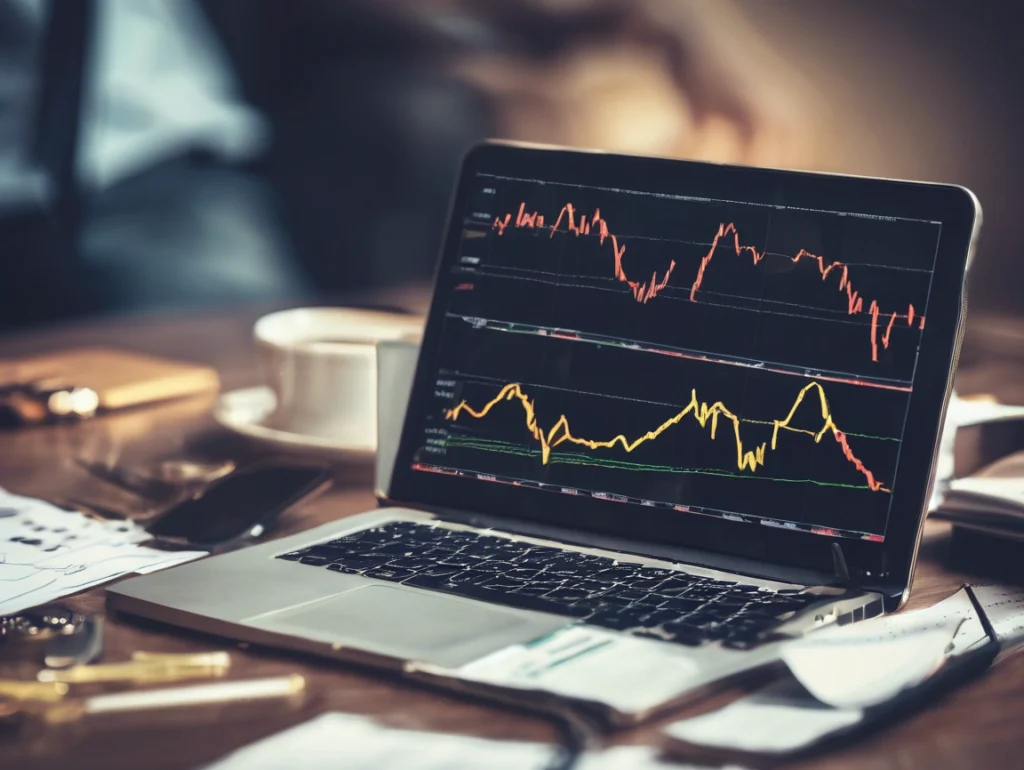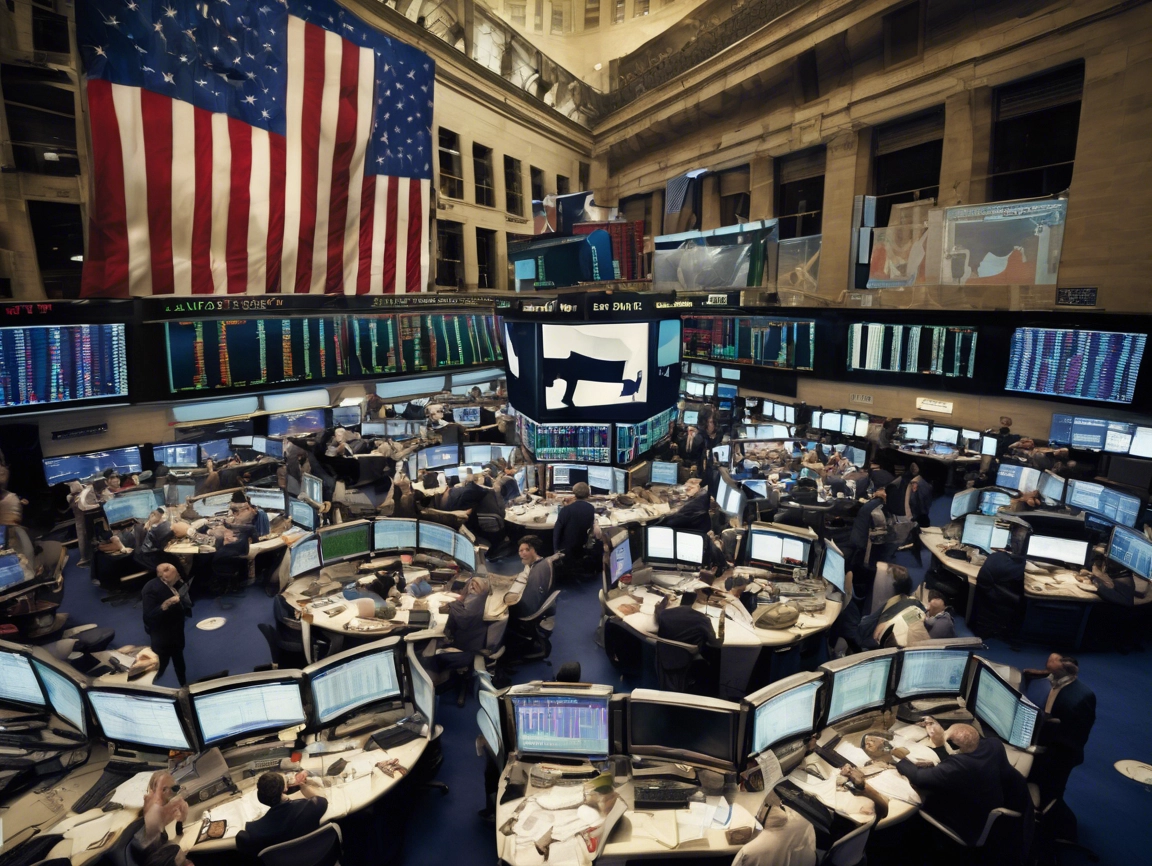By Cap Puckhaber, Reno, Nevada
I’m Cap Puckhaber, a marketing professional, amateur investor, part-time blogger, and outdoor enthusiast. Today on SimpleFinanceBlog.com, we break down how politics and elections impact the stock market to help you build a resilient investment strategy. Whether it’s Democrats or Republicans, Trump, Biden, or Obama, whatever is going on in the world of politics seems to directly impact the stock market, and with the advent of social media, one tweet can set things off. It’s easy to feel like your portfolio is at the mercy of the headlines, but my goal is to show you how to separate the signal from the noise and make informed decisions for your financial future.
The Market’s True Allegiance: Party, President, or Profits?
Let’s get right to the big question everyone asks: which political party is better for the stock market? The conventional wisdom usually says that Republican, pro-business policies should make stocks soar. It makes sense on the surface, right? But the historical data tells a surprisingly different story.
So, Who’s Better for Stocks: Democrats or Republicans?
If we look at the stock market’s performance over nearly a century, we find something that might challenge your assumptions. According to research analyzing S&P 500 returns from 1926 to 2023, the market has actually performed significantly better under Democratic presidents.
On average, the S&P 500 delivered an annual return of 14.78% when a Democrat was in the White House. Under a Republican president, that average annual return was 9.32%. That’s a difference of more than 5.5% per year, which is a massive gap in the world of investing. This counterintuitive finding is so well-documented that financial analysts often refer to it as the “Presidential Puzzle”. It shows us that the relationship between politics and markets isn’t as simple as “one party good, other party bad.”
The “Gridlock Is Good” Theory: Does a Divided Government Help Investors?
You’ve probably heard the old Wall Street saying that “gridlock is good.” The idea is that when political power is split between the parties (a divided government), it’s harder to pass drastic, market-shaking laws. This stability, in theory, should be a positive for investors. But again, the data forces us to dig a little deeper.
The data reveals a very specific, and very powerful, pattern. The stock market’s best historical performance has occurred under a Democratic president with a divided Congress. In this specific scenario, the S&P 500 has posted an average annual return of a whopping 16.63%. That’s better than a unified Democratic government (14.01%) and miles ahead of a divided government with a Republican president (7.33%).
The Real Boss: Why the Business Cycle Outranks the Political Cycle
Ultimately, both of these political puzzles point to a more fundamental truth: the economy itself is the real driver of long-term market performance. As research from financial giants like Fidelity points out, a full business cycle—the natural rhythm of economic expansion and contraction—averages about seven years. That’s significantly longer than a four-year presidential term. Presidents often get too much credit when the market is booming and too much blame when it’s busting, because they’re often just inheriting an economy that was already heading in a certain direction.
S&P 500 Performance by Presidential Year
There are even predictable patterns within a presidential term. Historically, the third year of a president’s term has been the best for the stock market. This is often because administrations push for pro-growth policies to boost the economy ahead of the next election. The election year itself is often the weakest, as uncertainty makes investors cautious.
| Presidential Year | Average Annual S&P 500 Return |
| First Year | 6.7% |
| Second Year | 6.8% |
| Third Year | 13.0% |
| Election Year | 2.4% |
Source: PinPoint Macro Analytics, data since Nov. 1980
From the White House to Wall Street: A Practical Guide to Policy Impacts
While the big picture is driven by the economy, specific government policies absolutely create winners and losers among different sectors and companies. Understanding these connections is key to seeing beyond the headlines.
Tax Policy: The Bottom Line for Your Bottom Line
Changes in tax law are one of the most direct ways politics affects your portfolio.
- Corporate Taxes: When corporate tax rates are cut, as they were with the Tax Cuts and Jobs Act of 2017, companies keep more of their profits. Higher profits can lead to higher stock prices, stock buybacks, and increased dividends. Conversely, raising the corporate tax rate can put downward pressure on earnings and stock valuations.
- Capital Gains Taxes: Changes to the tax rate on investment profits (capital gains) can influence investor behavior. Lower rates can encourage more buying and selling, while higher rates might cause investors to hold onto their assets longer to defer the tax hit.
Trade and Tariffs: The Price of Protection
Trade policy, especially the use of tariffs (taxes on imported goods), can cause significant market volatility.
- Consumer Impact: Tariffs on foreign goods almost always lead to higher prices for consumers. Research on the 2018-2019 tariffs showed that the costs were passed on almost entirely to U.S. importers and consumers, not paid by China. This can hurt retail and consumer goods companies.
- Supply Chain Disruptions: Companies that rely on global supply chains, like automakers and electronics manufacturers, face higher costs and major disruptions when tariffs are imposed. This can squeeze their profit margins and hurt their stock performance.
Regulation: The Rules of the Game
A president’s approach to regulation can create clear tailwinds or headwinds for specific industries.
- Financial Sector: Easing regulations, such as the Dodd-Frank rules put in place after the 2008 crisis, can reduce compliance costs for banks and financial firms, potentially boosting their profitability.
- Energy Sector: An administration focused on fossil fuels might roll back environmental regulations to encourage oil and gas production. An administration focused on climate change will push subsidies for renewable energy and electric vehicles (EVs), creating opportunities for green energy companies.
- Healthcare Sector: This sector is particularly sensitive to policy. Debates around the Affordable Care Act, drug pricing, and Medicare funding can cause major swings in the stocks of insurance companies and pharmaceutical firms.
The Elephant in the Room: The Federal Reserve
It’s crucial to remember that the president doesn’t control interest rates. That’s the job of the independent Federal Reserve (“the Fed”). The Fed’s decisions on monetary policy, made to control inflation and maximize employment, often have a much larger and more immediate impact on the market than fiscal policy from Congress and the White House. A president can hit the gas with spending, but if the Fed is hitting the brakes with high interest rates to fight inflation, the brakes almost always win.
Your Actionable, Politics-Proof Investment Playbook
So, what can you actually do with all this information? How do you build a portfolio that can weather any political storm? The good news is that the best strategy is also the simplest. It’s not about predicting elections; it’s about sticking to timeless investing principles.
Step 1: Build Your Foundation with the Right Asset Allocation
Before you buy a single stock, you need a plan. Asset allocation is just a fancy term for how you divide your money between different types of investments, mainly stocks, bonds, and cash. This is the single most important decision you’ll make. Your ideal mix depends on your time horizon and your risk tolerance.
Here are a few examples for a beginner investor:
- Aggressive (Long time horizon, high risk tolerance): You’re young and saving for retirement decades away.
- 80% Stocks: Mostly in a broad U.S. stock market index fund, with some international stock exposure.
- 20% Bonds: A total bond market index fund.
- Moderate (Medium time horizon, medium risk tolerance): You’re saving for a goal 10-15 years away.
- 60% Stocks: A mix of U.S. and international stock funds.
- 40% Bonds: A total bond market index fund.
- Conservative (Short time horizon, low risk tolerance): You’re nearing retirement or saving for a goal in the next few years.
- 30% Stocks: U.S. and international stock funds.
- 70% Bonds and Cash: A mix of bond funds and high-yield savings accounts.
Step 2: Choose Your Tools: Index Funds and ETFs for Beginners
For most people, the best way to achieve diversification is through low-cost index funds or Exchange-Traded Funds (ETFs). These funds hold hundreds or even thousands of stocks, so you’re not putting all your eggs in one basket.
- S&P 500 Index Fund: This is the classic choice. It gives you ownership in 500 of the largest U.S. companies. If one sector gets hit by a new regulation, another might get a boost, smoothing out your overall returns.
- Total Stock Market Index Fund: This goes even broader, including small and mid-sized companies.
- Total International Stock Index Fund: To diversify geographically, it’s wise to own companies outside the U.S. as well.
You can build a powerful, globally diversified portfolio with just these three funds. Reputable, low-cost providers include Vanguard, Fidelity, and(https://www.schwab.com/).
Step 3: Stay the Course and Tune Out the Noise
The single biggest mistake investors make during election years is letting fear drive their decisions. It’s tempting to pull your money out and wait on the sidelines, but this can be a costly error.
- The Myth of the Sidelines: Moving your portfolio to cash is a classic mistake. You have to be right twice: when to get out and when to get back in. History shows that investors who do this often miss the market’s best days, which can devastate long-term returns.
- History Is On Your Side: The S&P 500 has, on average, posted an 11% gain in election years and a 10% gain in the year immediately following. By staying invested, you give your money the chance to capture that growth.
Step 4: Do Your Homework: A Beginner’s Guide to Researching Stocks
While index funds are the best foundation, you might be interested in owning individual stocks. If so, focus on the business, not the political buzz. Here’s a simple research process using free tools:
- Start with What You Know: Think about companies whose products you use and admire.
- Use Free Research Tools: Websites like (https://finance.yahoo.com/) and Morningstar are excellent resources for beginners.
- Check the Financials (Quantitative Research): On Yahoo Finance, you can look up a stock ticker (e.g., AAPL for Apple) and click on the “Financials” tab. Look at the Income Statement. Is revenue (the top line) growing year over year? Is net income (the bottom line) also growing? Consistent growth is a great sign.
- Understand the Business (Qualitative Research): Use Morningstar to read analyst reports. Their “(https://www.morningstar.com/stocks/morningstars-guide-investing-stocks)” explains key concepts like their “Economic Moat” rating, which measures a company’s ability to fend off competitors. Does the company have a strong brand or a unique product?
Your Portfolio Should Outlast Any President
It’s completely normal to feel anxious when political uncertainty is high. The headlines are designed to grab your attention and stir your emotions. But as long-term investors, our greatest advantage is our perspective. The data is clear: over the long run, the U.S. stock market and the American economy have been incredibly resilient, growing through every kind of political environment imaginable.
Your financial plan shouldn’t be based on a four-year election cycle. It should be based on your own life, your own goals, and your own timeline. By building a diversified portfolio, choosing low-cost investments, and focusing on the fundamental health of the businesses you own, you can build a strategy that is strong enough to outlast any president, any Congress, and any political party.
New to Simply Finance Blog is my take on Risk-Averse Crypto Tips for Beginners by Cap Puckhaber
Check out my latest blog on U.S. China Trade War by Cap Puckhaber
If you haven’t seen it yet check out my blog on Apple Hits $4 Trillion Valuation by Cap Puckhaber
Investing Blog for Beginners
Hosted by Cap Puckhaber of Black Diamond Marketing Solutions, this investing blog offers daily articles on investing, savings, bonds, interest rates, mortgages, and more.



About the Founder / Author
Cap Puckhaber is a seasoned marketing strategist and finance writer, based in Reno, Nevada with over 20 years of experience investing, marketing and helping small businesses grow.
He offers expert advice on how to save for retirement, how to use a retirement calculator and the difference between T-Bills and CDs.
Cap Puckhaber shares actionable insights on how to promote your business locally for free and on trending platforms like X.
He shares his personal investment journey, how to use trade volume to predict breakouts, and his take on covered call strategies.

Follow Cap Puckhaber Online
Connect with Cap Puckhaber on Facebook
See Real-Time Thoughts on X
Read In-Depth Articles on Medium
Subscribe to Cap Puckhaber’s Substack Newsletter
Follow Cap Puckhaber’s Company Page on LinkedIn
View Our Agency Profile on DesignRush
See Cap Puckhaber’s Agency on Agency Spotter
Explore Technical Projects on GitHub
See Cap Puckhaber’s Creative Portfolio on Behance
Learn more about my company on Crunchbase
Join Cap Puckhaber’s Conversation on BlueSky
Follow My Updates on Mastodon

Backpacker, Marketer, Investor, Blogger, Husband, Dog-Dad, Golfer, Snowboarder
Cap Puckhaber is a marketing strategist, finance writer, and outdoor enthusiast from Reno, Nevada. He writes across CapPuckhaber.com, TheHikingAdventures.com, SimpleFinanceBlog.com, and BlackDiamondMarketingSolutions.com.
Follow him for honest, real-world advice backed by 20+ years of experience.


